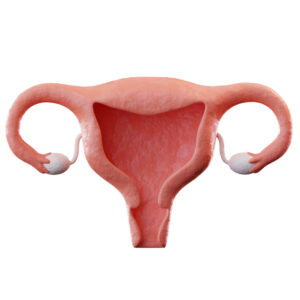Homeopathic Remedies: A Natural Approach to Fistula Management
Understanding Fistula
A fistula is an abnormal connection or passageway between two organs or vessels that normally do not connect. This condition can occur in various parts of the body, but it’s most commonly found in the anal area, known as an anal fistula. Fistulas can cause significant discomfort, pain, and complications if left untreated.
Fistulas often result from infections, injuries, or certain medical conditions. They can be particularly troublesome, as they may lead to chronic drainage, pain, and recurrent infections. While conventional medicine typically recommends surgery for fistula treatment, many people are turning to alternative approaches like homeopathy for a gentler, non-invasive solution.
Homeopathy for Fistula Treatment
Homeopathy is a holistic system of medicine that aims to stimulate the body’s natural healing processes. It is based on the principle of “like cures like,” using highly diluted substances to trigger the body’s self-healing mechanisms. When it comes to fistula treatment, homeopathy offers a range of remedies that can help manage symptoms, promote healing, and prevent recurrence.
At Ccube Homeopathy, we specialize in providing personalized homeopathic treatments for various conditions, including fistulas. Our approach focuses on addressing the root cause of the problem while alleviating symptoms and improving overall health.
Top 6 Homeopathic Remedies for Fistula
Silicea
Silicea, also known as silica, is one of the most commonly prescribed homeopathic remedies for fistula. It is particularly effective for:
- Chronic fistulas that are slow to heal
- Fistulas with thin, watery discharge
- Patients who are generally chilly and prone to sweating
Silicea works by strengthening the body’s connective tissues and enhancing the immune system. It helps in pushing out foreign bodies and promoting the healing of suppurative processes.
Calcarea Fluorica
Calcarea Fluorica is another valuable remedy in the treatment of fistulas, especially:
- Fistulas with hard, knotty edges
- Conditions where there is induration (hardening) of tissues
- Cases with recurrent abscesses leading to fistula formation
This remedy is known for its ability to improve the elasticity of tissues and blood vessels, which can be beneficial in the healing process of fistulas.
Nitric Acid
Nitric Acid is often indicated for:
- Fistulas with sharp, splinter-like pains
- Conditions with foul-smelling, corrosive discharge
- Patients who are irritable and sensitive to pain
This remedy is particularly useful for fistulas in the anal region and can help manage the pain and discomfort associated with the condition.
Thuja Occidentalis
Thuja Occidentalis is beneficial for:
- Fistulas associated with chronic skin conditions
- Cases with a history of suppressed infections or skin eruptions
- Patients with a tendency towards warts or other growths
Thuja is known for its ability to address conditions that result from the suppression of natural discharges or eruptions, making it valuable in certain types of fistulas.
Hepar Sulphuris Calcareum
Hepar Sulphuris Calcareum is indicated for:
- Fistulas that are extremely sensitive to touch and cold
- Conditions with thick, pus-like discharge
- Patients who are irritable and chilly
This remedy is particularly useful in the early stages of fistula formation, especially when there’s a tendency towards suppuration.
Hamamelis Virginica
Hamamelis Virginica, commonly known as witch hazel, is beneficial for:
- Fistulas associated with venous congestion
- Conditions with passive bleeding
- Patients experiencing a sense of soreness and bruising
Hamamelis is particularly useful for fistulas in the anal region, especially when associated with hemorrhoids or venous issues.
Homeopathic Treatment Approach at Ccube Homeopathy
At Ccube Homeopathy, we understand that each case of fistula is unique. Our approach to treatment involves:
- Comprehensive Assessment: We conduct a thorough evaluation of your medical history, symptoms, and overall health to understand the root cause of your fistula.
- Individualized Treatment Plan: Based on our assessment, we create a personalized treatment plan using the most appropriate homeopathic remedies for your specific case.
- Holistic Care: Our treatment not only focuses on healing the fistula but also aims to improve your overall health and prevent recurrence.
- Regular Monitoring: We closely monitor your progress and adjust the treatment as needed to ensure optimal results.
- Patient Education: We provide guidance on lifestyle modifications and self-care practices to support your healing process.
Lifestyle Changes to Support Fistula Healing
In addition to homeopathic treatment, certain lifestyle changes can significantly support the healing process:
- Maintain Good Hygiene: Keep the affected area clean and dry to prevent infection.
- Dietary Modifications:
- Increase fiber intake to soften stools and reduce strain during bowel movements.
- Stay well-hydrated to prevent constipation.
- Avoid spicy foods that may irritate the digestive system.
- Sitz Baths: Regular sitz baths can help soothe the area and promote healing.
- Stress Management: Practice stress-reduction techniques like meditation or yoga, as stress can exacerbate symptoms.
- Exercise: Engage in gentle exercises to improve circulation and overall health.
- Avoid Irritants: Stay away from harsh soaps or wipes that may irritate the affected area.
When to Seek Professional Help
While homeopathic treatments can be highly effective for many cases of fistula, it’s important to know when to seek professional medical help. Consult a healthcare provider if you experience:
- Severe pain or discomfort
- High fever
- Excessive bleeding
- Signs of infection (increased redness, swelling, or warmth around the affected area)
- No improvement after several weeks of treatment
At Ccube Homeopathy, we always recommend a professional evaluation to ensure proper diagnosis and treatment. Our experienced homeopaths can work in conjunction with your primary care physician to provide comprehensive care.
Conclusion
Homeopathic treatments offer a natural, non-invasive approach to managing fistulas. The six common remedies discussed – Silicea, Calcarea Fluorica, Nitric Acid, Thuja Occidentalis, Hepar Sulphuris Calcareum, and Hamamelis Virginica – each address specific aspects of fistula symptoms and can be highly effective when properly prescribed.
However, it’s crucial to remember that homeopathy is a complex system of medicine, and self-prescription is not recommended. For the best results, consult with a qualified homeopath who can provide a personalized treatment plan tailored to your specific condition and overall health profile.
At Ccube Homeopathy, we are committed to providing expert care and guidance in the homeopathic treatment of fistulas and other health conditions. Our holistic approach, combined with years of experience, ensures that you receive the most appropriate and effective treatment for your needs.
If you’re struggling with a fistula and are interested in exploring homeopathic treatment options, we encourage you to reach out to us. Let us help you on your journey to healing and better health, naturally and gently.
Contact Ccube Homeopathy for a Consultation
Remember, every journey to health is unique, and with the right approach, healing is possible. Trust in the power of homeopathy and your body’s natural ability to heal, and take the first step towards recovery today.




